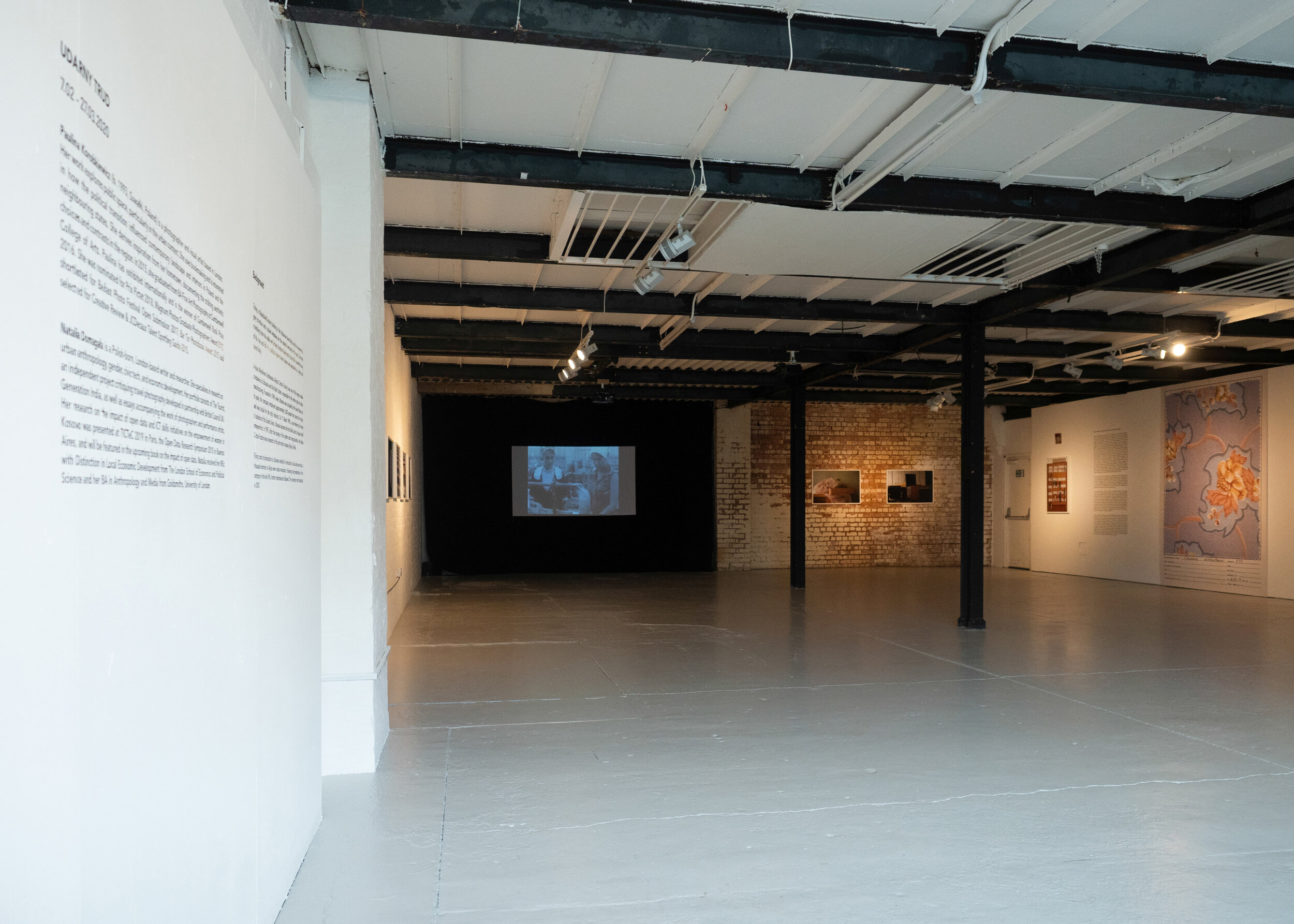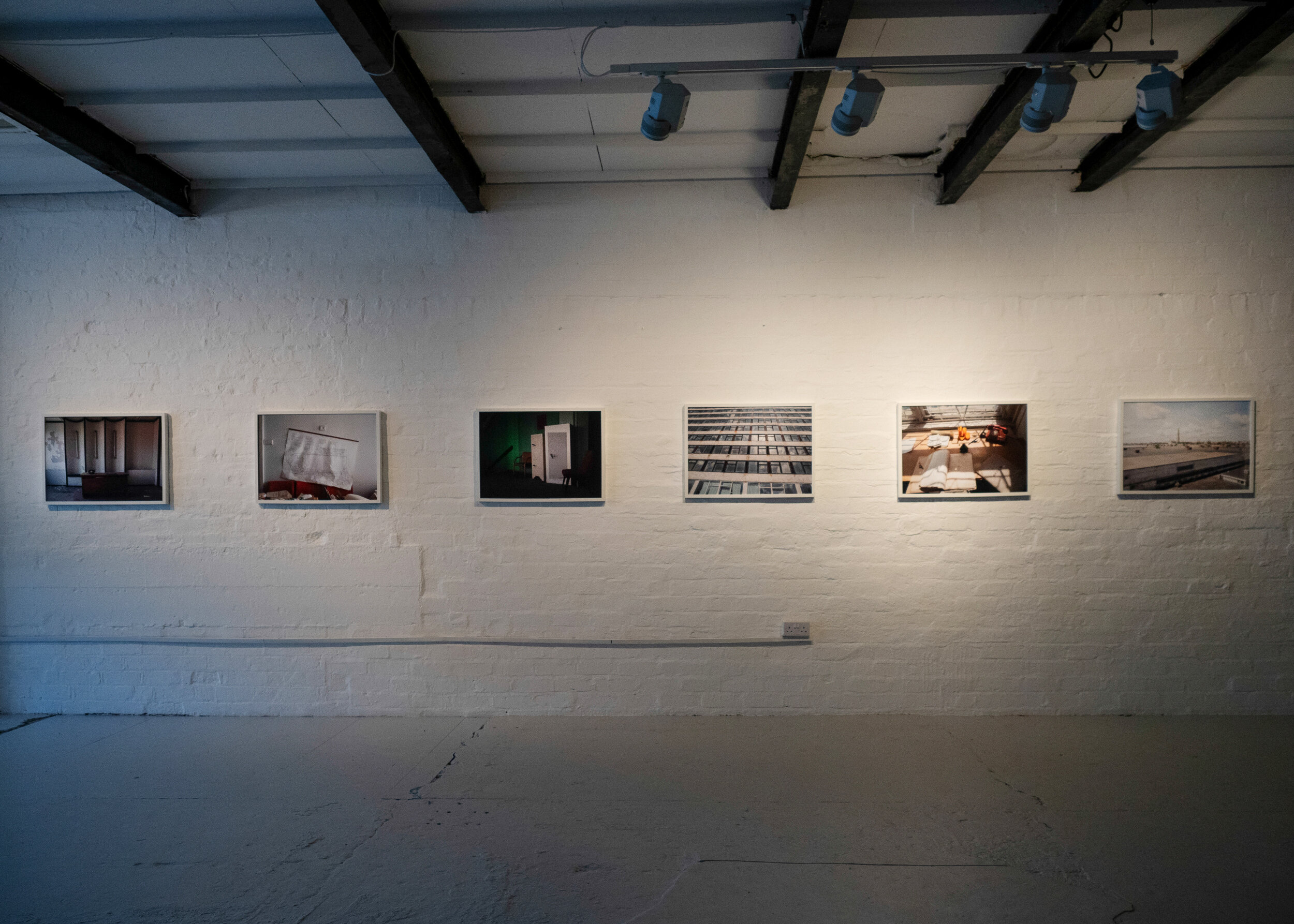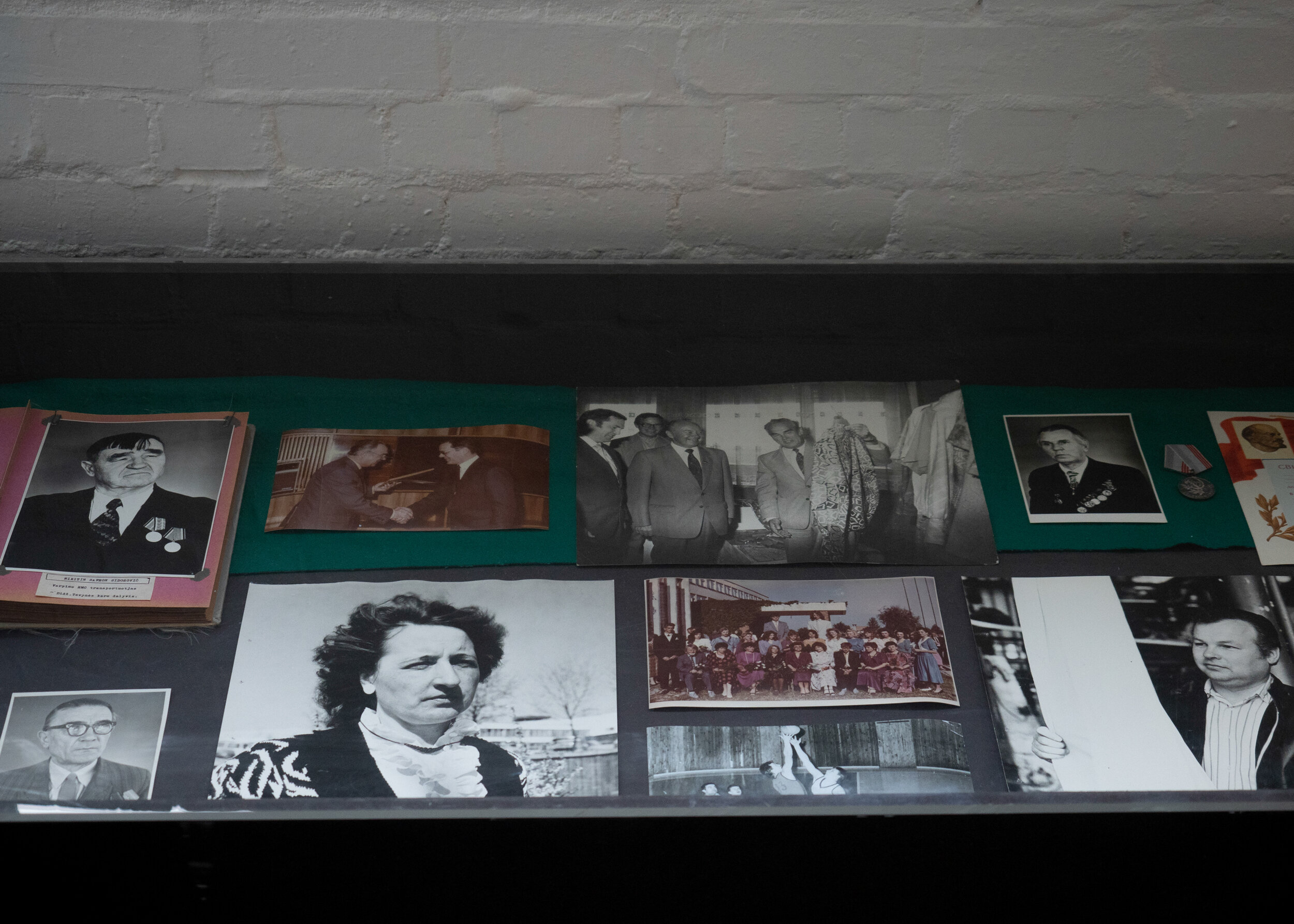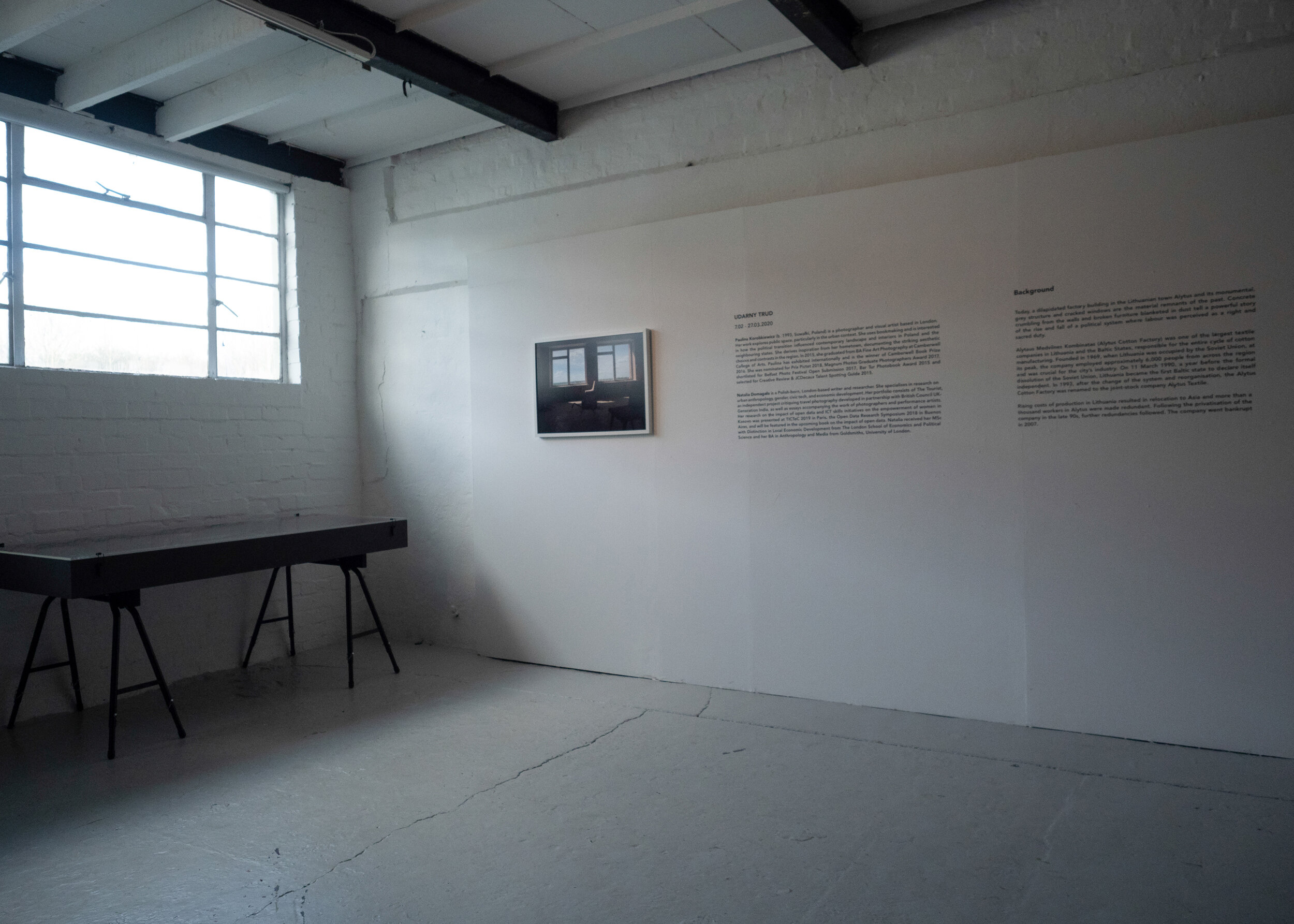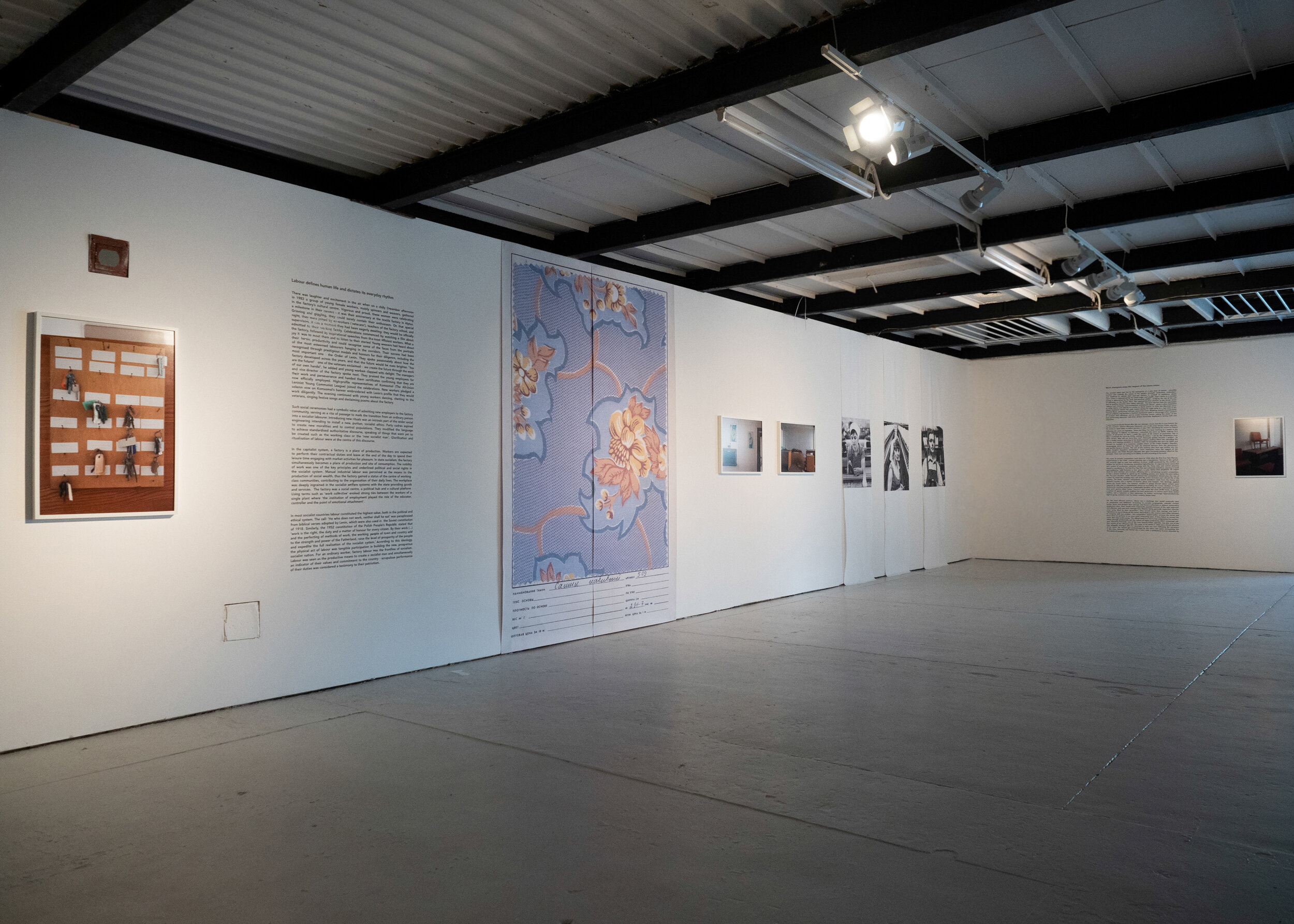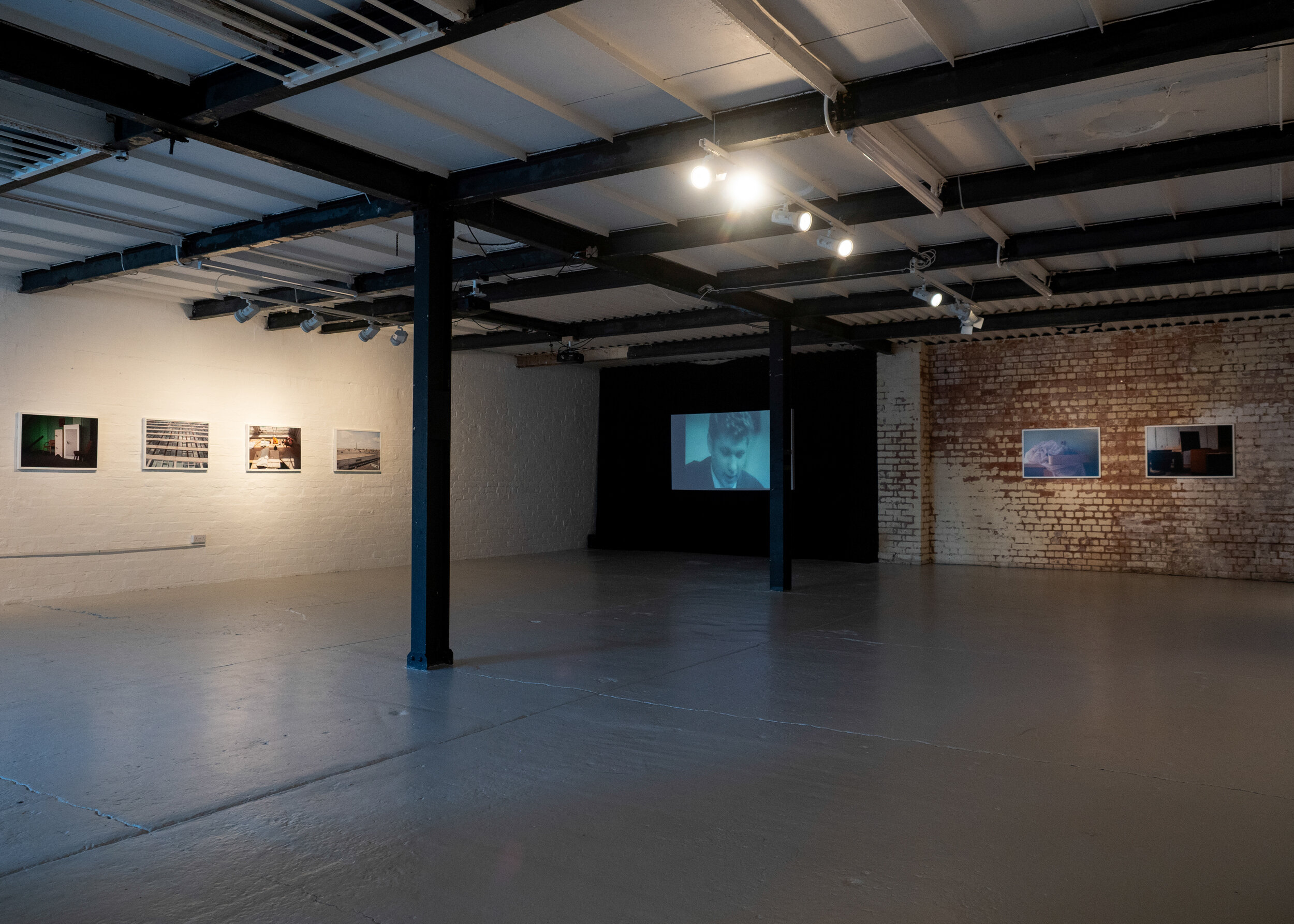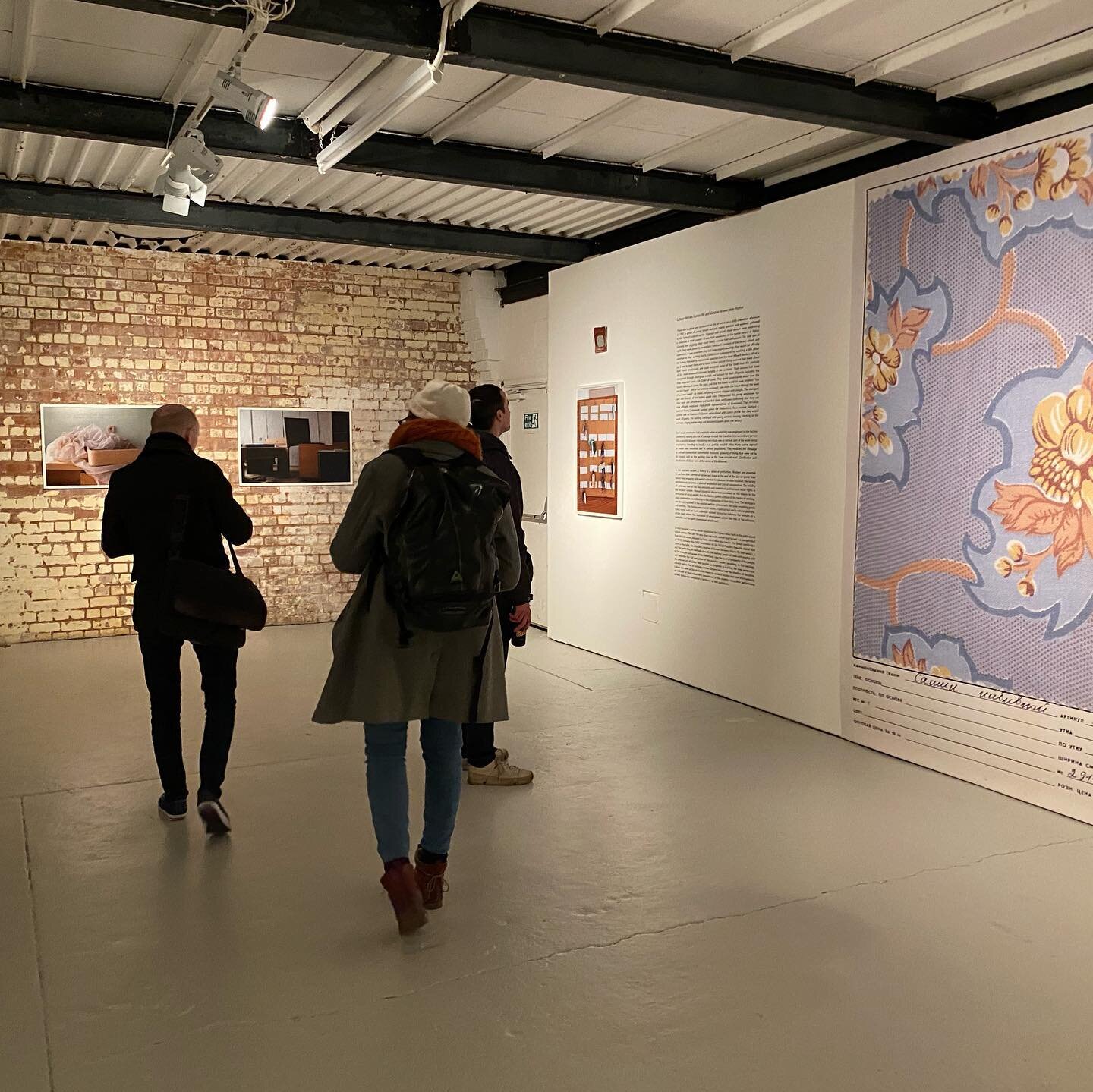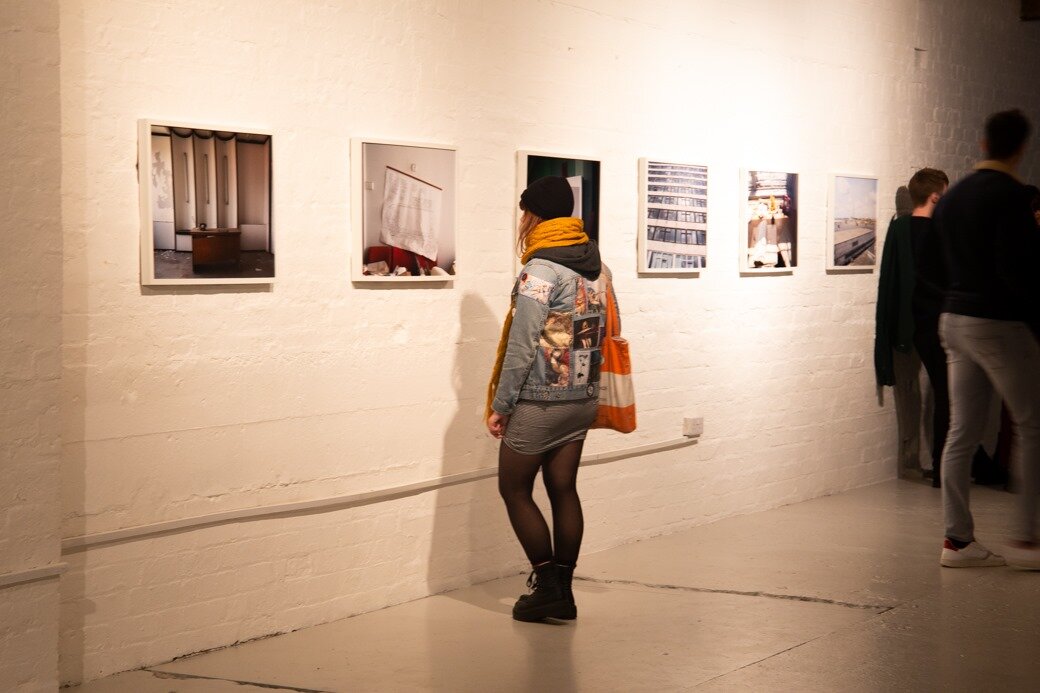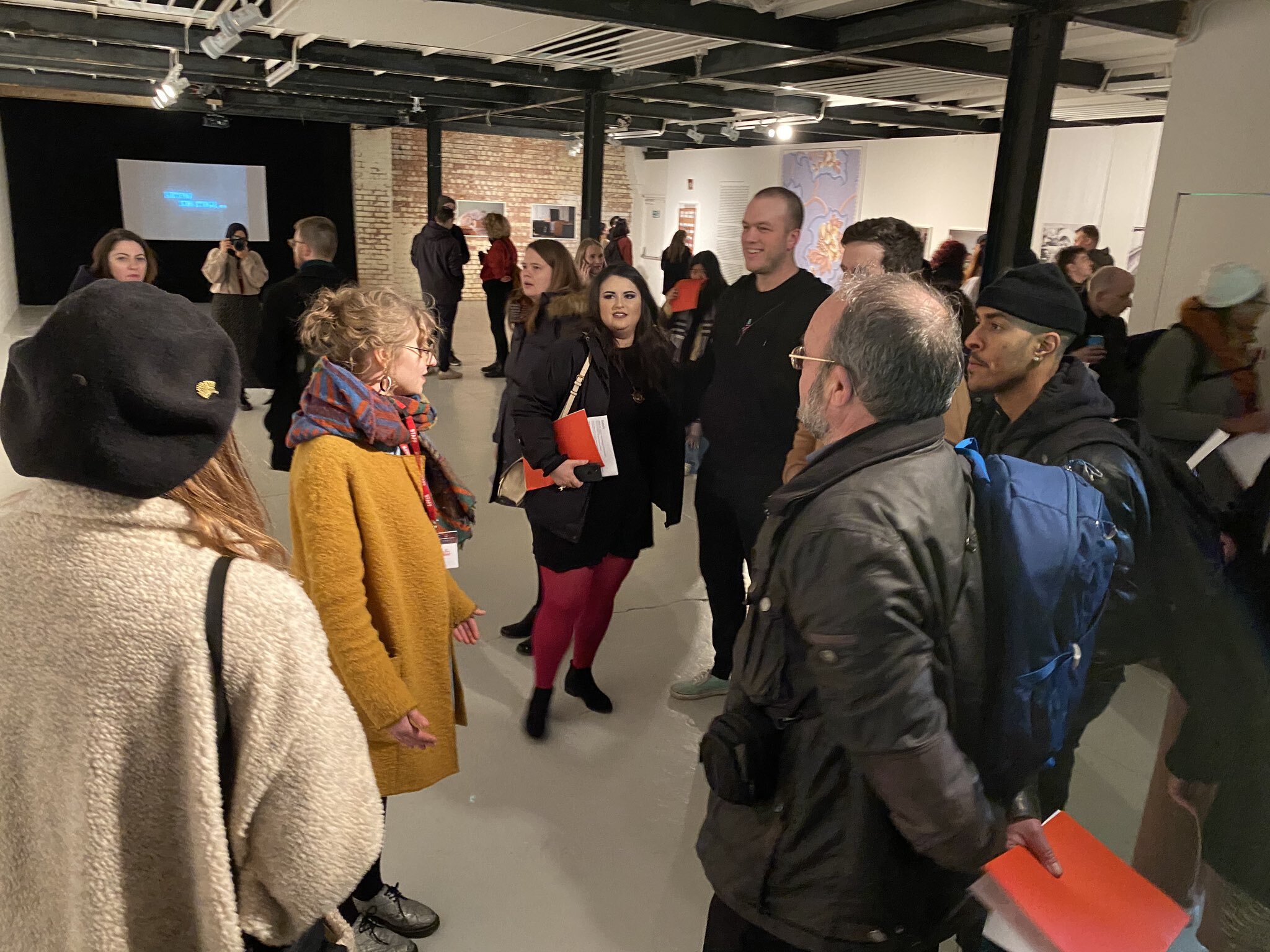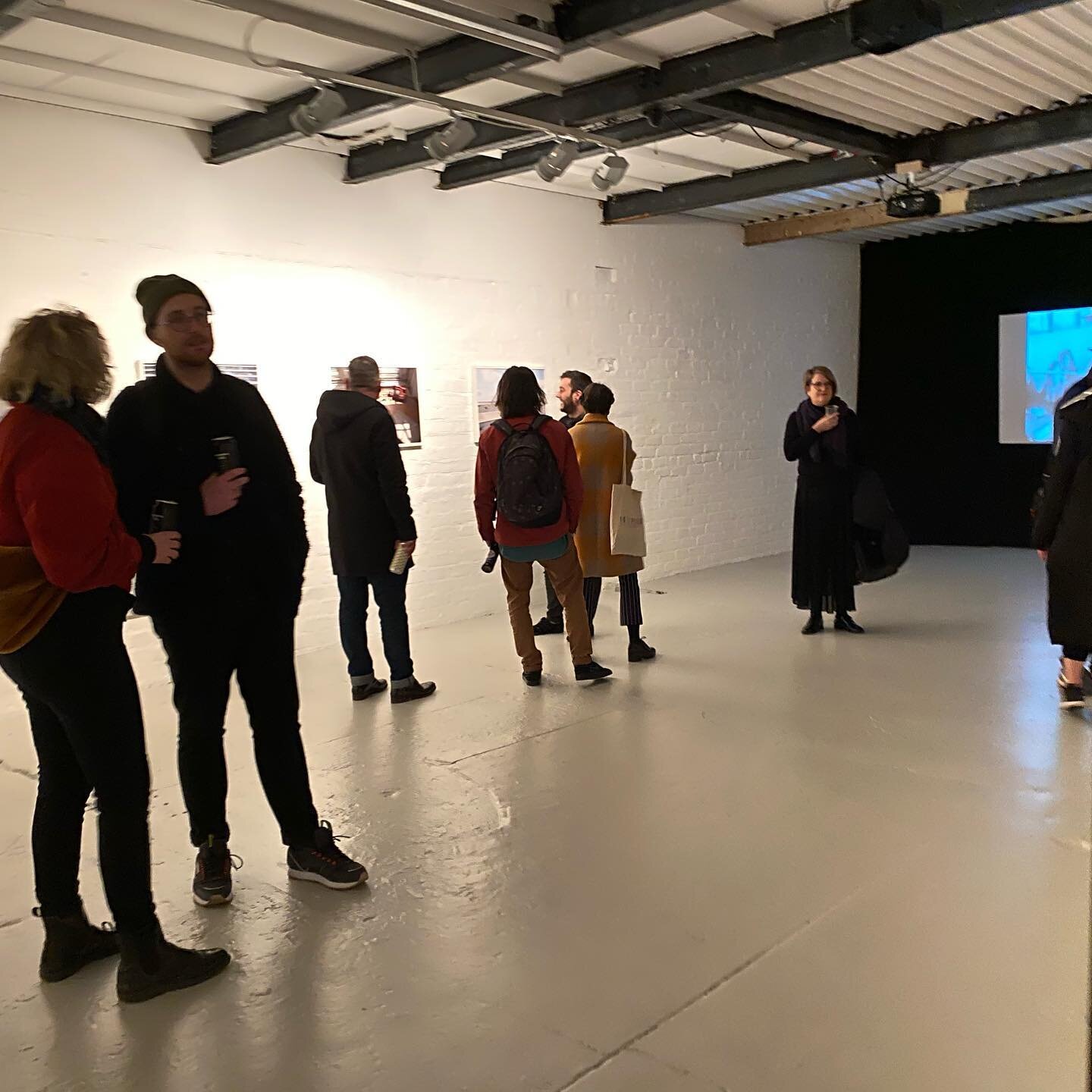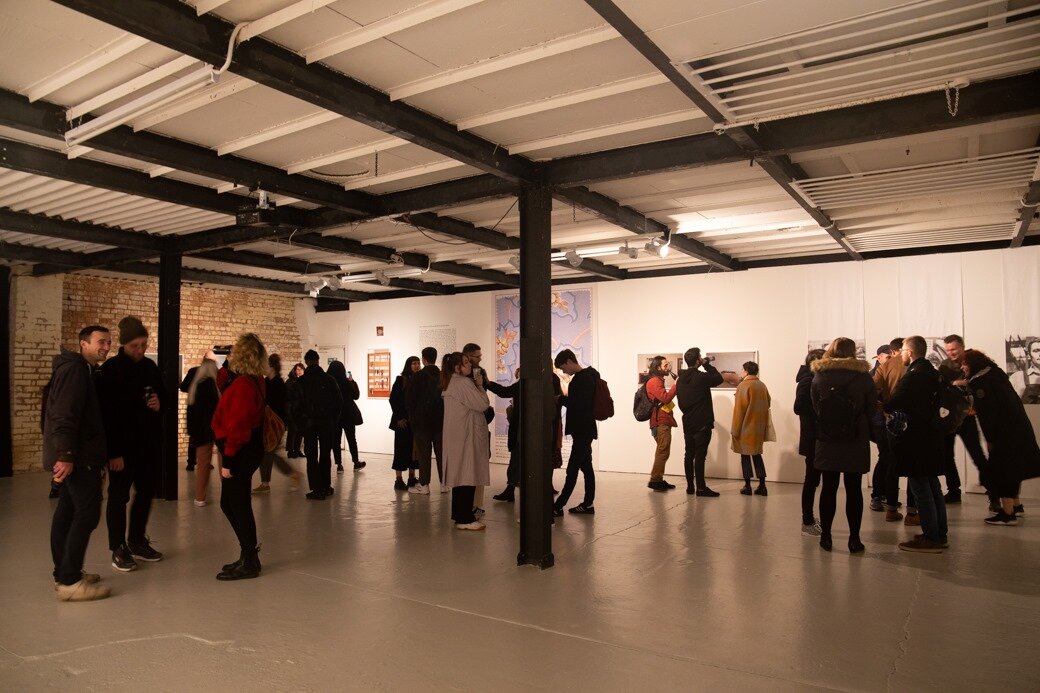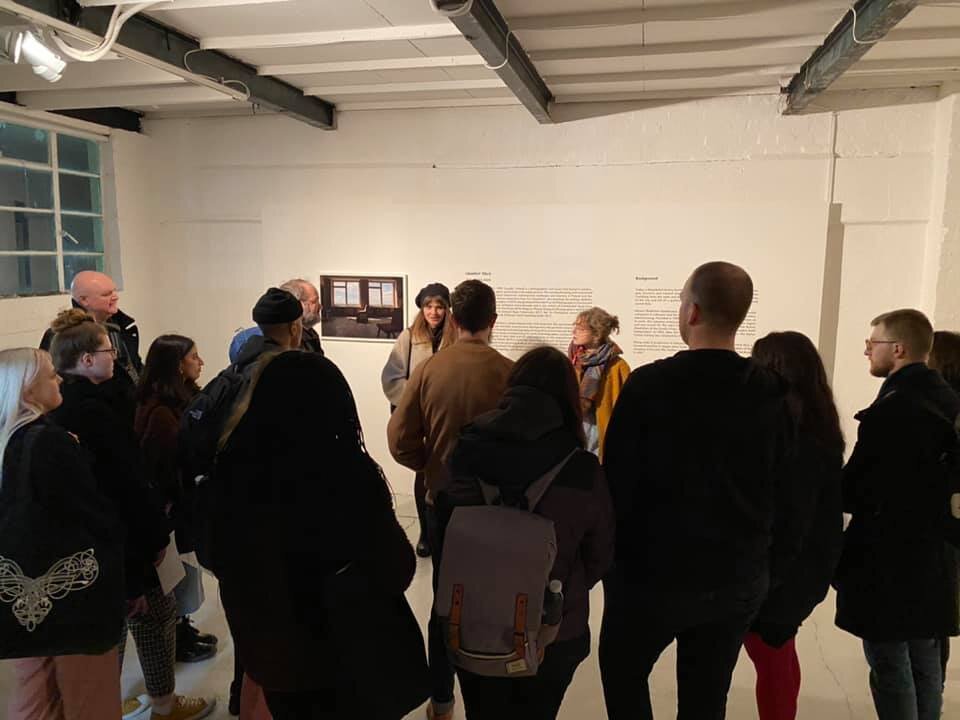I am taking over Hapax Magazine Instagram this week. I will be sharing images from my past projects and current process.
spaces of (dis)connection - Centrala, Birmingham /
Małgorzata Dawidek - Sylwia Kowalczyk - Paulina Korobkiewicz
02.09 - 24.09 2022
Centrala Space
Wednesday - Saturday, 12-6PM
Unit 4, Minerva Works 158 Fazeley Street, Birmingham
spaces of (dis)connection - Group Show /
SPACES OF (DIS)CONNECTION: MIGRANT ESSENTIAL WORKERS
02/09/2022 - 24/09/2022
Launching at Digbeth First Friday 6PM 02/09/22, details to follow.
spaces of (dis)connection follows a pioneering project conducted by researchers across the UK to investigate how the pandemic has affected the everyday lives and settlement plans of Polish workers in the UK. This exhibition combines newly commissioned photographic work by Małgorzata Dawidek, Paulina Korobkiewicz, and Sylwia Kowalczyk alongside anonymous testimonies given by Polish essential workers across the UK. The respective works speak to the changing public and private landscapes that resulted from the various lockdowns implemented by the English and Scottish governments. In exploring how spaces have transformed, through depopulation or increased habitation, the artists have produced uniquely insightful and intimate works. Be they spaces of connection or disconnection, these photographs evidence an environment affected by uncertainty and isolation.
The Migrant Essential Workers project has been developed by Prof. Sharon Wright, Dr Anna Gawlewicz, Dr Kasia Narkowicz, Dr Aneta Piekut and Dr Paulina Trevena, advised by Prof. Robert Gawłowski, Alicja Kaczmarek, Prof. Rebecca Kay, Prof. Majella Kilkey, and Dr Sarah Kyambi, with support from the Polish Social and Cultural Association, Polish Expats Association, Fife Migrants Forum, and PKAVS Minority Communities Hub, and funding from the UK Research and Innovation via the Economic and Social Research Council. spaces of (dis)connection has been curated by Centrala Director Alicja Kaczmarek and Arts Programme Coordinator Alice Reed.
Image by Paulina Korobkiewicz.
This exhibition is touring between Centrala, Birmingham [02-24.09.2022]
Clapham Library, London [30.09.-14.10.2022]
Art27, Edinburgh [Dates TBC]
Hapax Magazine Issue 3 /
I am really happy to announce that I am one of the recipients of the curatorial commission of third issue of Hapax Magazine, to be published Winter 2022/2023. Following a call-out for submissions of interest, the editors have selected five artists and one curator who will create new photographic projects or curated sections for publication in the third issue of this semiannual magazine.
Artists:
Immaculata Abba is a Nigerian portrait and documentary photographer. All her work is an effort to enrich our imagination of the beauty, abundance and care possible in our lives. Her projects and commissions have been published in The Photographer’s Gallery, Saraba magazine and GIDA Journal, among others. Her documentary project 'Dusty Hill Drive' explores the built environment in South-East Nigeria and part of it was published in 2021 as a zine by Another Place Press. She is an inaugural African Arguments Journalism Fellow and a film artist under the 'Creating Black Joy' project sponsored by The Antipode Foundation. She is a member of the Black Women Photographers and Indigenous Photograph collective.
Paulina Korobkiewicz is a photographer and visual artist whose work deals with trauma of post-communist states, politics of identity, home and belonging. In 2016 she self-published her first photo-book Disco Polo. The project was shortlisted for Bar Tur Photobook Award 2015 organised by The Photographers’ Gallery and Belfast Photo Festival Open Submission 2017. In 2016 she won Camberwell Book Prize, and as a result she created and published her second photo-book in collaboration with Camberwell Press titled Perspectives. Paulina has shown her work in the UK and internationally, was nominated for Magnum Photos Graduate Photographers Award 2017 and Prix Pictet 2018. Her latest solo exhibition ‘Udarny trud’ exploring the idea of labour and propaganda presented by Centrala gallery in Birmingham was shortlisted for Athens Photofestival Open Submission and International Format Festival 2021. She lives and works in London.
Alexander Mourant is an artist based in London. His work has been included in publications such as FT Weekend Magazine, British Journal of Photography, Photograph, Unseen Magazine and The Greatest Magazine. Solo shows include Aomori at The Old Truman Brewery and Unseen Amsterdam, alongside group shows at Edel Assanti, Saatchi Gallery and Peckham 24. Mourant is a recipient of grants from ArtHouse Jersey, Jersey Bursary and Arts Council England. He has won the Free Range Award and was nominated for Foam Paul Huf Award. In 2020, Mourant became a member of Revolv Collective. He is also a Visiting Lecturer and Tutor on BA (Hons) Photography at University of Westminster. In 2022 he designed and led A Place to Call Home, a landmark schools collaboration project with Wandsworth Council’s Children’s and Arts Service.
Helen Sear is an artist whose practice focuses on the co-existence of human, animal, and natural environments and is rooted in an interest in Magic Realism, Surrealism and Conceptual Art. Her photographic works became widely known in the 1991 British Council exhibition, De-Composition: Constructed Photography in Britain, which toured extensively in Latin America and Eastern Europe. Sear was the first woman to represent Wales with a solo exhibition at the 56th Venice Biennale 2015 presenting a suite of new works ‘…the rest is smoke’. Two major pieces were acquired by the James Hyman British Photography Collection in 2019 and Dewi Lewis published her Photobook Era Of Solitude in November 2021.
Amin Yousefi lives and works in London. A native of Abadan in the province of Khuzestan, Iran’s most oil-rich region and the scene of Iran’s bloody war with neighbouring Iraq, Yousefi works with ideas related to history, social-political landscape and effects of war and how the act of photography can conceptually mirror the structures of these relationships. His works have featured in numerous national and international group exhibitions and awards and a recent solo exhibition ‘Life, Death and other Similar Things’ at Ag Galerie, Tehran.
Curator:
Rica Cerbarano
Rica Cerbarano is a curator, writer and coordinator of projects related to photography. She is a regular contributor to Vogue Italia and she has been project assistant of Photo Vogue Festival since 2016. She writes also for the Italian monthly magazine Il Giornale dell’Arte, one of the most renowned publications about arts and culture. Alongside editorial collaborations, she works as an exhibition designer and producer for several institutions and nonprofit organisations. Rica is also the manager and co-founder of the collective Kublaiklan, which explores accessible ways of interacting with photography through the design of exhibitions and educational activities.In her curatorial research, Rica focuses on the mechanisms of production, diffusion and reception of images, looking especially at projects that adopt a cross-disciplinary approach or involve collaborative practices. She is a member of the Artistic Direction Board of Photolux Festival 2022.
Kajet Journal: On Easternfuturism /
My project Udarny trud is a part of the fifth issue of Kajet Journal: On Easternfuturism, with text by Natalia Domagała. Published by Dispozitiv Books.
Read more here.
Artist Residency @ Centrala Space, Birmingham /
The Artist Residency at Centrala Space in Birmingham, as part of the Post-Socialist Britain: Memory Representation and Political Identity amongst German, Polish, and Ukrainian Immigrants research project, comprises an 18-month-long commission. The research project, serves as a starting point for a photographic exploration led by photographer Paulina Korobkiewicz, which will culminate in exhibitions held at Centrala Space in Birmingham and in Nottingham.
Furthermore, a series of audience engagement events has been curated to complement this multifaceted project and exhibition. These events encompass photo walks, workshops, seminars, and cultural celebrations, all designed to foster a deeper connection between the project and the community it serves.
Synergy Zine Launch /
Me and painter Jack Martyn Richardson are launching our collaborative zine Synergy at this year’s edition of Art Bibuła artist book fair.
The zine consists of spray paint prints and polaroids of the process behind them. The project explores how two creative approaches allow each other to exist in unison investigating the idea of artistic collaboration and exchange. The zine comes in a transparent plastic sleeve. This edition has two cover variations to choose from. Each version includes a limited edition postcard, two posters and two stickers.
KWAS Magazine #2 /
Take-away is published as a part of the second issue of KWAS Magazine, issue KLOPS.
Created entirely inclusive on the basis of an open call by Agnieszka Sejud and Karolina Wojtas. Everyone was selected. The magazine is comprised of 2020 memories of 65 participants.
Published in edition of 500 copies, 160 pages, size - 21 x 33 cm.
Riga Photomonth 2021 /
24 May - 4 July 2021
My ongoing series Take-away was selected for Riga Photomonth. It will be a on display as part of Projection - Life After Covid.
30th June, 10 pm
FORMAT International Photography Festival /
I am very excited to have been shortlisted for the Format Festival 2021 Open Call - ‘Control’, with my project Udarny trud.
It’s great to be among 203 amazing artists, selected from 813 submissions from 66 countries across the world. Thank you Format Festival and all the judges!
Athens Photo Festival 2020 /
Udarny trud was shortlisted for Athens Photo Festival Open Call.
Udarny trud - Artist Talk /
Wall Unit - Open Eye Gallery /
Digital Exhibition for Open Source #016
1 - 31 March 2020
IG Residency: 9 - 14 March
OPEN EYE GALLERY
19 MANN ISLAND
LIVERPOOL WATERFRONT
LIVERPOOL
L3 1BP
Udarny Trud - Artist talk /
In converstation: Paulina Korobkiewicz, Natalia Domagala
Paulina Korobkiewicz, a photographer and visual artist whose solo show was inspired by archival material found in an abandoned textile factory in Alytus, and Natalia Domagala, an author of the essays accompanying the show, will be discussing the socialist cult of work, shifting attitudes to labour and how growing up surrounded by post-socialist aesthetics shaped their perception of the world.
Thursday, 19th March, 6 pm
Free entry
Centrala, Unit 4, Minerva Works, 158 Fazeley Street, B5 5RT Birmingham
Spectrum Photographic Instagram Takeover /
Udarny Trud - Solo Show @ Centrala /
8 February – 27 March 2020
Private View: 7 February, 6pm – 9pm
Udarny trud is a solo show of a London-based Polish photographer Paulina Korobkiewicz. The exhibition consists of archival material that Korobkiewicz found in an abandoned textile factory in Alytus (Lithuania) with contemporary photos she took of the building and its interiors.
Born and raised in a borderland town in Eastern Poland near Lithuania, Korobkiewicz came across the factory when researching a project on aesthetics of post-socialist spaces in the summer of 2018. Upon entering the building, she discovered a wealth of neglected artefacts, textile samples, and personal photographs of the factory staff.
Alytaus Medvilnes Kombinatas was one of the largest textile companies in Lithuania and the Baltic States, responsible for the whole cycle of cotton manufacturing. Founded in 1969, the company went bankrupt in 2007, with the rising costs of production in Lithuania and the possibility of outsourcing labour from Asia cited as some of the reasons for its closure. At its peak, the enterprise employed approximately 6,000 people from all over Lithuania and it was crucial for the city’s industry.
Today, a dilapidated building and its monumental structure, cracked windows, and torn curtains represent the material remnants of the past. Concrete crumbling from the walls, abandoned rooms and broken furniture covered with layers of dust tell a powerful story of the rise and fall of a political system where labour was perceived as a right and a sacred duty.
Through juxtaposing the past and present of the textile enterprise set up during the socialist reign in Lithuania, Korobkiewicz poses questions about the meaning of labour in the previous and current political systems and explores social interactions shaping lives on the factory floor. She critically examines the cult of productivity and the role of the factory as a site of production and consumption through the archival photos that present the factory as a social centre and cultural platform of working-class communities.
Deriving from the Russian ‘уда́рник’, the title of the exhibition refers to super-productive, enthusiastic labour that has been the backbone of the socialist conceptualisation of productivity. ‘Udarnik’ was a highly efficient worker exceeding the norm of required labour. Breaking records of productivity gained publicity and became a twofold mechanism to encourage other workers to increase their efficiency, and to create everyday heroes, raising the status of the best-performing labourers, with their photos honorarily displayed in factory halls and chronicles.
The exhibition is accompanied by short essays by Natalia Domagala, a Polish- born, London-based writer and researcher.
Centrala is a multifunctional art space in Birmingham run by the Polish Expats Association, a non-profit organisation presenting art from Central and Eastern Europe and the UK.
Centrala, Unit 4 Minerva Works 158 Fazeley Street, Birmingham, B5 5RT
Opening Times: Wed - Sat, 12 - 8 pm
Free entry
Printed by Spectrum Photographic
/
Artist Talk: The Ambiguity of Aesthetic Choices /
Join me for my talk at the London Institute of Photography on Friday, 4th October at 7pm. I will be speaking about my practice and showing selected photographs from recent projects. Tickets are £3, book your place here.
4th October 2019, 7 – 9pm
£3 (free for our PPC students)
London Institute of Photography
Old Truman Brewery
91 Brick Lane
London, E1 6QL
Photobook.Storytelling Exhibition /
24 May - 14 June 2019
The show is a part of the series that focuses on various aspects of the photobook. A carefully designed exhibition presents the most interesting samples of the photobooks from the Visegrad region, that have been made out of the need to convey, usually a personal, story. Most of the presented works are either self-published or published in small editions, including hand-made or low-cost printed zine publications.
Presented artists
Tabori Andras, Ewa Behrens, Eva Benkova, Stanislav Briza, Radek Brousil, Jan Brykczynski, Magda Buczek, Kateřina Držková, Peter Fabo, Viola Fátyol, Lucia Gamanová, Aurélia Garová, Agnieszka Gotowała, Anna Hornik, Tomoya Imamura, Zuzana Ivašková, Tereza Kabůrková, Ines Karčáková, Joanna Margaret Kischka , Deana Kolencikova, Jan Kolský , Viktor Kopasz, Paulina Korobkiewicz, Andrea Kurjakova, Alicja Łabądź, Katarzyna Ewa Legendź , Tomasz Liboska, Michal Loba, Maciej Moskwa , Boris Németh, Anna Orłowska, Krzysiek Orłowski, Ivana Paleckova, Marcin Plonka, Igor Pisuk, Piotr Pytel, Krzysztof Racoń, Kaja Rejczel Rata, Anka Sielska, Jakub Stanek, Juraj Starovecký, Dorota Stolarska, Eva Szombat, Budha Tamás, Jiri Thyn, Balázs Varju Tóth, Ondrej Urban, Imrich Veber, Doroteya Veykon , Ján Viazanička, Lukasz Wierzbowski , Karolina Wojtas, Adrian Wykrota, Ficsór Zsolt, Kasia Zolich, KWAS Karolina Wojtas, Agnieszka Sejud)
Image courtesy Fresh From Poland
Hybrid Prophecy Panel Discussion /
I will be speaking with Polish artist Kle Mens and curators Elaine Tam and Ryan Lanji at REJEKT Gallery. We'll be discussing Kle Mens's exhibition, her work and its themes.
Saturday, 15 June at 3 pm
82a Commercial Street, London E1 6LY3
In her first UK solo show, Kle Mens makes a brave incantation, summoning both religious martyrs and mythological hybrids to evoke the formidable force of female transformation, which underlies all her work. In a relational gesture of self- sacrifice, paint becomes embodied flesh, a profound moment of ekstasis propelling her into the temporality of long- standing religious order, a remark upon the continued urgency of feminist concerns. With similar spirit, she investigates the unusual, always-timeliness of the apocalypse — the recurring crisis of individual, collective and planetary future that haunts existence. Kle Mens presents us with this provocation: a Hybrid Prophecy that sees her assuming new bodies and fictions, while persisting with the religious iconography that she is passionately indebted to. With this, Kle Mens continues her elegant foray into mythic territories, their power and their promise.

























